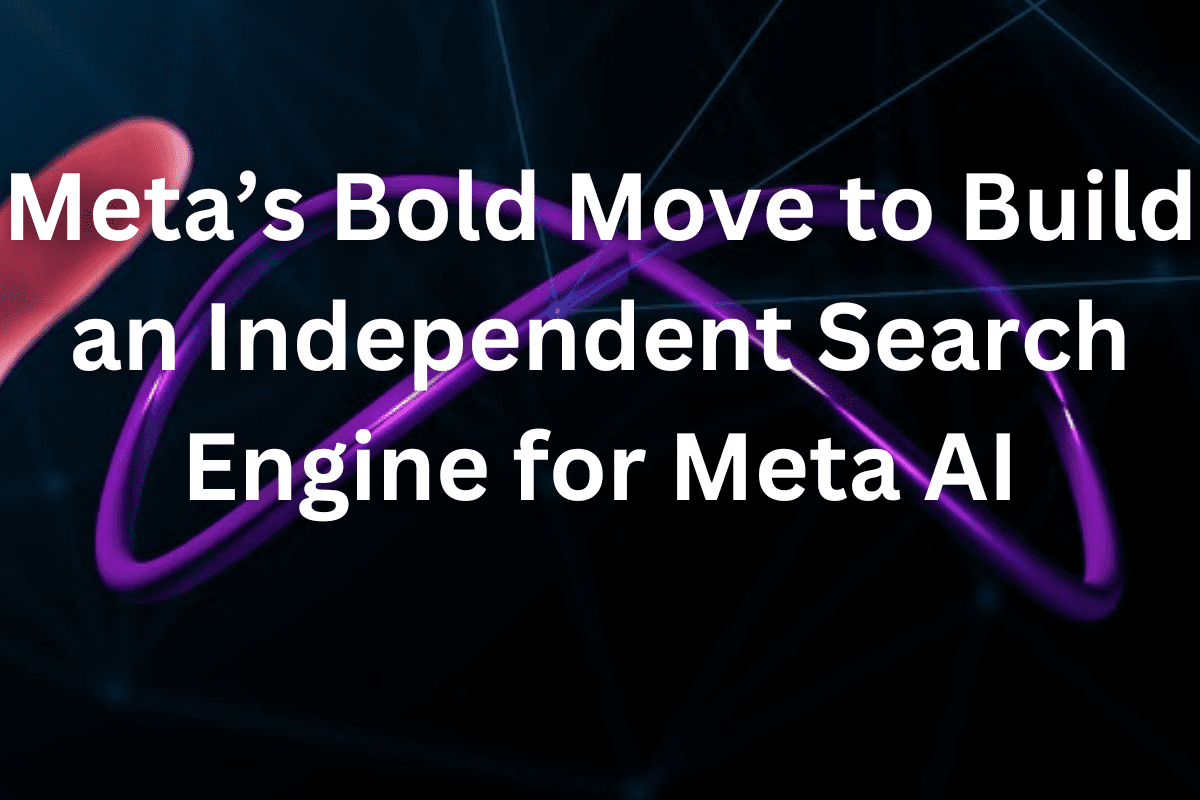In a bid to reduce its reliance on major search partners, Meta is reportedly developing its own web-crawling search engine for its AI chatbot, Meta AI.
Currently partnered with Microsoft’s Bing and Google, Meta utilises their web search capabilities to provide real-time information within Meta AI, allowing it to offer timely responses and detailed image generation tools.
However, as Meta continues to expand its AI capabilities, it appears increasingly keen on building an in-house solution, allowing it to stand more independently in the fiercely competitive field of artificial intelligence.
Meta’s Search Partnerships: A Strategic Start
When Meta introduced Meta AI in September last year, it began its search journey with a partnership with Bing, leveraging Microsoft’s search engine to provide users with up-to-the-minute information in text-based chats.
Bing’s integration allowed Meta AI to give contextual responses and direct users to relevant web links for deeper insights. In April of this year, Meta further extended its reach by partnering with Google, allowing Meta AI to draw from an even broader set of search results, thus enhancing its information pool.
Both partnerships have allowed Meta to provide robust, conversational responses with the latest web information, a critical feature in competing with other AI giants.
The Shift Towards Independence
Despite these partnerships, reports from The Information suggest that Meta is looking to develop its own web crawler to handle search queries autonomously.
With OpenAI, Google, and Microsoft all vying for AI supremacy, Meta’s dependency on these rival tech companies presents a vulnerability. Should Microsoft or Google pull their search support from Meta in response to competitive pressures, it could weaken Meta’s AI offerings.
Therefore, developing an in-house search engine not only ensures a safeguard against such a scenario but also grants Meta greater control over the data it gathers.
A Potential Boost for Meta’s Real-Time Tools and Threads App
If successful, an independent search engine could bring major benefits to Meta’s suite of apps.
A Meta-controlled search engine would allow real-time insights to be available across its platforms, especially valuable for Threads, Meta’s social app designed to offer current news and foster dynamic conversations.
Users could receive updates on breaking news stories, directly enhancing engagement and relevance on the platform. This would make Threads a more attractive competitor in the fast-paced social media landscape, where instant access to information is crucial.
Data Expansion: Fuel for Meta’s AI Models
Building an independent search engine is more than just a means of reducing reliance on Microsoft and Google; it’s also a strategic play to fuel Meta’s AI models with rich, up-to-date data.
Meta already deploys various web crawlers for data collection, ramping up activity in recent months to capture an extensive range of information for AI training. By developing a proprietary search engine, Meta can expand its data stores, reduce dependence on external providers, and accelerate the growth of its AI capabilities.
This focus on data aggregation aligns with the larger vision to strengthen Meta’s AI language models, potentially marking a shift toward a self-sustaining data ecosystem.
The Road Ahead: Challenges and Opportunities
Creating a robust, competitive search engine from scratch is no small feat. Google and Bing have decades of refinement behind their search algorithms, and achieving similar performance will be a monumental task.
However, the investment could pay off, allowing Meta to gain greater autonomy and mitigate risks associated with reliance on its AI competitors. In a tech landscape where AI development is advancing rapidly, Meta’s move could position it as a formidable contender in the field, equipped with a valuable, independent data pipeline.
Conclusion
Meta’s reported plans to develop an independent search engine reflect its commitment to long-term AI ambitions, minimising dependency on rivals like Google and Microsoft.
While building a proprietary web crawler is a complex and resource-intensive venture, the benefits of autonomy and data control could justify the effort. If successful, this shift could open up new avenues for Meta’s AI applications, including real-time insights across its platforms and a deeper reservoir of data for ongoing AI advancements.
As Meta races to stay competitive in the AI space, this bold step signifies a vision of increased self-sufficiency and innovation.









